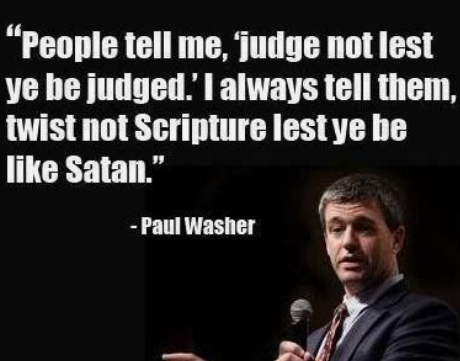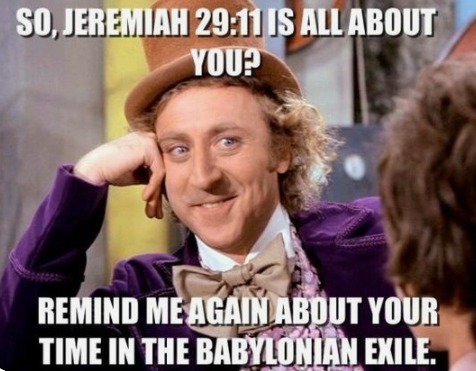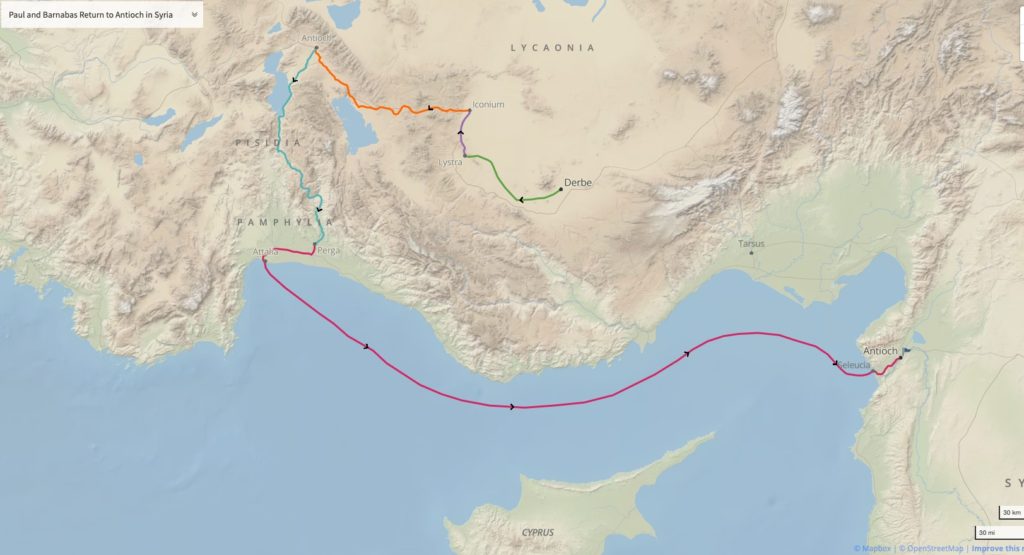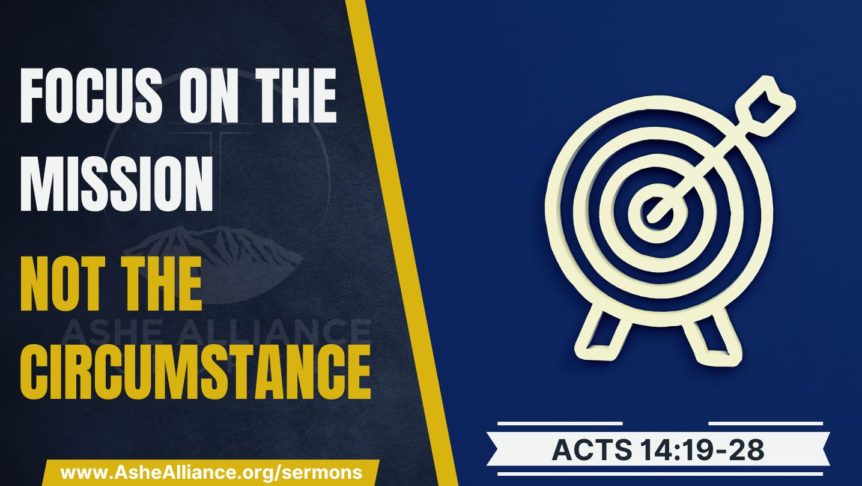WATCH
LISTEN
READ
Main Idea
In times of hardship or blessing, the circumstance doesn’t alter the mission.
Misquoted scripture. We’ve all seen them and loathe them. Here are a few of my favorites.

- Usually spoken in the KJV version, this is often used when people don’t want to be reminded of their sin or an inconvenient biblical truth.

- “For I know the plans I have for you, declares the Lord,” – usually a prayer of acknowledgment of God’s provision for daily living and prosperity, not realizing that this was a distinct promise to the exiles in Babylon to bring them back to Jerusalem after they were banished from the land as a divine judgment.

- “If you, then, will worship me, all will be yours.” This is a very inspiring verse from Luke 4:7 until you realize who said it (Satan. Satan said that… and this calendar was mass produced!)

- “God helps those who help themselves.” – another great little saying that doesn’t actually exist in scripture.

- And then, there is the mother of all misquoted scriptures: “I can do all things through Christ who strengthens me,” – used by many in sporting events, final exams, and kitchens while trying to open stubborn pickle jars.
Context is king. For that last one, Paul can do all things through Christ because he has learned how to be content in any circumstance: in plenty or need, in hunger or abundance… he can do all things. That is the proper context for Phil. 4:13, and for our story today.
Passage
Acts 14:19–28 ESV
19 But Jews came from Antioch and Iconium, and having persuaded the crowds, they stoned Paul and dragged him out of the city, supposing that he was dead. 20 But when the disciples gathered about him, he rose up and entered the city, and on the next day he went on with Barnabas to Derbe. 21 When they had preached the gospel to that city and had made many disciples, they returned to Lystra and to Iconium and to Antioch, 22 strengthening the souls of the disciples, encouraging them to continue in the faith, and saying that through many tribulations we must enter the kingdom of God. 23 And when they had appointed elders for them in every church, with prayer and fasting they committed them to the Lord in whom they had believed. 24 Then they passed through Pisidia and came to Pamphylia. 25 And when they had spoken the word in Perga, they went down to Attalia, 26 and from there they sailed to Antioch, where they had been commended to the grace of God for the work that they had fulfilled. 27 And when they arrived and gathered the church together, they declared all that God had done with them, and how he had opened a door of faith to the Gentiles. 28 And they remained no little time with the disciples.
Outline
I – Rise against the opposition
II – Return to complete the mission
III – Report the good news
I – Rise against the opposition
Prowling lions

At this point in the story, we are still in Lystra, where Paul and Barnabas brought the word and then healed a disabled man, which resulted in the people hailing them as Zeus and Hermes. They brought animals out to sacrifice and started to worship Paul and Barnabas. Realizing what was happening, they tore their robes and began pointing the people to Yahweh, the God who created all things and provided for the entire human race. When we ended our time together, Paul and Barnabas still struggled to convince the citizens that they were not gods.
And, while they were trying to clean up one mess, an entirely different one was developing behind their backs. Surprisingly, the Jews from Pisidian Antioch and Iconium were tracking them, traveling 100+ miles to dispense judgment upon them. Talk about dedication! They were like prowling lions, seeking out their prey.
And if that isn’t impressive enough, these Jewish travelers could do what Paul and Barnabas could not. Somehow, they held such sway that they persuaded the same people who once thought Paul and Barnabas were gods that they were indeed just humans… and terrible humans at that. This Jewish mob squad had such a commanding presence that they turned the Lystrian citizens a full 180 degrees from worshiping who they thought were gods to accomplices to murder by stoning them as heretics.
Think about that. The enemy can be very persuasive. I’m not trying to demonize the Jews here. Instead, I’m helping us understand that the spiritual forces who are real enemies can use other people to accomplish their mission: believers and non-believers alike. So don’t take the enemy for granted; don’t allow the devil a foothold in your life and use you against your brothers and sisters.
The Jews finish what they start
If you remember, In Iconium, the Jews wanted to stone Paul and Barnabas, but the men learned about their murderous plot and fled before the Jews could follow through. Now, they have tracked down their prey and will finish what they started.
Now that the crowd had been persuaded that Paul was not Hermes and that he was a villain, Paul was completely surrounded. Instead of holding garlands, the mob was now holding stones. Instead of offering worship, they breathed condemnation. And, without any reference to Roman consent, the mob delivered an illegal execution of a Roman citizen. Paul’s body was mutilated as jagged rock slammed against flesh and bone. Rough edges would have gashed open the skin. The larger stones would have broken bones. This would have been brutal and bloody. Paul would have collapsed at some point, allowing the mob to tighten the circle around him and pelt him at closer range.
Perhaps Stephen’s face flashed through his mind. How could it not? This is what he had approved only a few years ago. Eventually, Paul would have received a blow that knocked him unconscious, and the mob would not have stopped until the sentence was completed satisfactorily.
After the dust settled, Paul appeared dead. His crumpled, unconscious, blood-stained body lies in the dirt, motionless. He seemed so dead, in fact, that they dragged his body out of the city and left him on the outskirts to rot and feed the wild animals. Thinking they completed their mission, they dusted off their hands and returned home.
Rise up
Imagine what the other disciples in Lystra must be thinking. Like the mob, they encircle the Apostle, but instead of violence, they… do what? Are they mourning the loss of their leader? Are they praying for a resurrection? Do they think he’s dead or just unconscious? Luke doesn’t tell us what the disciples are doing. We can only speculate.
What we do know, however, is that Paul rose. As the disciples surrounded him, doing whatever they were doing, Paul’s eyes sprang open. I’m sure that freaked a lot of them out. I’m also sure that any surprise or fear quickly morphed into praise and attentive care. Maybe some of them bent down and helped Paul to his feet. We don’t get a sense of how miraculous this event was. It is a miracle that he was alive in the first place and able to walk under his own strength. Don’t miss that. But we need to be careful when trying to draw conclusions beyond what the text says. We aren’t told that Paul was healed entirely – to say that the bones were reset, the bruising faded, and the deep gashes in his skin were closed up. We can’t know that happened.
If he remained heavily traumatized by his physical wounds, it makes it even more impressive, in my personal opinion. Despite the pain of his injuries, Paul remained undeterred. He rose up, returned to the city where the mob lived, and didn’t leave until the next day!
Paul specifically references this moment in 2 Cor. 11:25 and as an overview in 2 Tim. 3:11.
2 Corinthians 11:25 ESV
25 Three times I was beaten with rods. Once I was stoned. Three times I was shipwrecked; a night and a day I was adrift at sea;
2 Timothy 3:11 ESV
11 my persecutions and sufferings that happened to me at Antioch, at Iconium, and at Lystra—which persecutions I endured; yet from them all the Lord rescued me.
That day, Paul showed what it meant to stay on mission. Despite enduring a literal execution, Paul rose. Paul rose up like:
• Matthew, the tax collector, rose and followed Jesus
• Jairus’ 12-year-old daughter rose from the dead
• Aeneas rose when his legs were made whole
• Peter rose when the angel rescued him from prison
• He did when the scales fell from his eyes and accepted Jesus as the Christ
• When the lame man he had just healed by the power of Christ sprang to his feet and convinced the town that he was a god
When the enemy throws everything he has at you and knocks you down, rise up. Is your marriage in jeopardy? Rise up and fight for it. Does an addiction or specific sin have a hold on you right now? Rise up, claim the victory in Jesus’ name, and continue walking the narrow road. Jesus came to set the captives free, break the chains of the afflicted, and save those who are lost! The work was finished on the cross! Your job is to rise up and continue running the race, not under your own power, but by the power of the Holy Spirit. All God’s people will ensure to the end!
Paul didn’t lie in the dust, defeated by the beating he endured (though who would blame him if he did?) He rose up and continued on. He has a mission to accomplish, and not even a near-death experience will keep him from fulfilling it.
II – Return to complete the mission
Preach the gospel
After spending the night and stretching out his stiff, bruised muscles, Paul continues 65 miles southeast to Derbe. Talk about hardcore! That is about the same distance from Boone to Lincolnton. And you think you’re a tough guy!
This would be his final stop in Journey 1 before he backtracks, and we aren’t given any information about this trip other than the preached the gospel… isn’t that enough? That is what he and Barnabas were commissioned to do, and he did it despite his weakened condition. If I ever get someone to fill this pulpit because I have a tummy ache, you have my permission to make fun of me, okay? If Paul were only to accomplish one thing, the proclamation of the gospel would be that one thing. Paul never wavers from the main goal. In times of hardship or blessing, his circumstance doesn’t alter his mission.
Strengthen souls
From this point on, Paul and Barnabas retrace their steps. They could have easily continued southeast back to Syrian Antioch, but he didn’t. The Jews thought Paul was dead. They could have safely visited towns that didn’t know who he was. Paul could have visited family in Tarsus (which would have been on the way back to Syrian Antioch) and recovered from his injuries with the loving care of family and friends. These two men could have taken an easier path, but they weren’t called to live easy. They were called to build God’s church, and the baby churches that were just planted needed them. So, they boldly and selflessly went back to the new believers in the towns where their fiercest opposition lived to encourage and strengthen the souls of the believers.
No doubt, the Jews were persecuting the new flocks. As a church planting pastor, I can assure you that their very presence – the fact that they came back at all to be with them – was a great encouragement. Add in the reality of Paul’s stoning, and you can see just how powerful his presence was to new Christians learning how to live a godly life in a pagan world. He ensured what? And yet he came back here to encourage me to persevere? Imagine the effect this would have had. Paul’s tenacity strengthened their resolve. He didn’t back down. His body bears the marks of stoning, and yet here he is! No matter the personal cost, the good news of Jesus Christ must go forward.
Encourage perseverance
Continue in the faith. Don’t back down. Your faith is achieving something much greater than yourself. Your trials and your tribulations are producing good things in your life.
James 1:2–4 ESV
2 Count it all joy, my brothers, when you meet trials of various kinds, 3 for you know that the testing of your faith produces steadfastness. 4 And let steadfastness have its full effect, that you may be perfect and complete, lacking in nothing.
I exhort you to stand firm in your faith (2 Cor. 1:24), examine your faith (2 Cor. 13:5), use your faith as a shield of protection (Eph. 6:16), and realize that because of the resurrected Christ, your faith brings value and your sins are forgiven (1 Cor. 15:17). Your light and momentary troubles will pale in comparison to the glory of the day you stand face to face with our great God and Savior – Jesus Christ!
Remember the cost
It’s through many tribulations that we must enter the kingdom of God. Not me (after my failed execution). WE. All of us who believe. The word tribulation means trouble that inflicts distress, opposition, and affliction.
Clearly, the gathered believers weren’t surprised by this news. They were being actively persecuted by the Jews in the city, and just look at Paul’s face! If that is the case for the early church, why is it such a shock to the 21st-century church? After all, Jesus said this would happen. If people hated Him, they would hate his followers. Be ready to come and bear your cross, or don’t come at all. Blessed are those who are persecuted for righteousness sake, for theirs is the kingdom of heaven. Rejoice in your affliction because you have a great heavenly reward!
Paul probably said something like: Jesus said it… I’ve lived it… and I can verify that it is all worth the cost! Jesus died for me. Why should I not be willing to die for Him? No matter what opposition you may face… rise up!
Establish the leadership
Paul would have strengthened and encouraged them individually, but he also intends to strengthen them corporately as the local Body of Christ by establishing and affirming its leadership. Throughout the New Testament, we see how Christ establishes the individual church with levels of leadership:
1. Paul is an apostle and a ‘sent one’ (which is the meaning of apostle) who plants churches.
2. Each church has Elders (always plural) as their governing leadership. They are the ones tasked with leading, feeding, guiding, and protecting the flock.
3. Deacons, as their servant leadership, are tasked with the stewardship of the practical needs of the flock and encouraging and guiding as needed (as seen in Philip and Stephen’s lives).
We see the same here. Wherever Paul goes, he establishes Elders as the governing leadership. And this is not accomplished on a whim. There is an intentional process of prayer and fasting, then committed them to the Lord before he departed. And by going through this process, he strengthens and encourages the Church Body as a whole.
The strengthening and encouragement of the churches is at the core of our scripture today… literally being in the center of the passage. It is also the core of the message. We are always on mission. In times of hardship or blessing, our current circumstance doesn’t alter that mission. We proclaim the gospel and strengthen the saints. As that happens, churches are built, and God is exalted. That is DDM.
So, let me ask you two questions in light of this truth.
1. What encouragement do you need right now?
2. What encouragement can you give right now?
Once you have the answers to those questions, seek others out and make it happen!
So far, we’ve seen affliction and empowerment, and now, we get to finish with a declaration.
III – Report the good news
The journey home
Continuing the journey back home, we see that the men revisited Pisidia and the coastal city of Perga in Pamphylia, where we are told they spoke the word… meaning they proclaimed the gospel there. As a refresher, this is where Mark deserted them and went back home and where some commentators speculate Paul got sick with malaria, so this wouldn’t have exactly been a place filled with happy memories.
After preaching in Perga, they added a new city onto their itinerary – Attalia, which is also a coastal city east of Perga. We aren’t told if they ministered there, but we know they sailed directly from Attalia to Syrian Antioch.
Declare God’s mighty works
Now, Paul and Barnabas are finally back at home base, surrounded by their tribe… the faithful brothers and sisters who had been commended to the grace of God for the work, prayed over them and commissioned them to go and bring the gospel to the ends of the earth. So much has happened, and there are so many stories to tell!
So, the two missionaries gathered the church body and told the many stories of what God had done throughout their travels: the encounter with the magician in Cyprus and the conversion of the Roman Proconsul. How they proclaimed the gospel in synagogues and countless Jews, God-fearers, and Gentiles came to faith in Christ. How the Jews resisted, but the Gentiles rejoiced in their Jewish Savior. How they were mistaken for Greek gods, and how God had rescued them from death’s doorstep. As they told the stories and declared God’s mighty works… as they confirmed God’s plan to extend salvation to the Gentiles… the Body of Christ was edified.
Declaring God’s excellencies is not just for evangelism. His works can also be declared in the church as well as on the street corners. We all need to be refreshed by stories of God’s faithfulness.
Conclusion
In closing, I want to encourage you to stay the course. Paul shows us how to be content and stay on mission in any circumstance because he can do all things through Christ, who gives him strength. And if it’s true for him, it’s true for you. I don’t know what trials you are facing today. Maybe you are in a great place and enjoying God’s blessings right now, or perhaps life has thrown you down and kicked out a few of your teeth. My encouragement to you is the same as Paul’s. Continue in the faith. Proclaim Christ in any circumstance. Expect hardship and opposition and rise up to whatever the enemy throws your way. Christ is with you and strengthening you.
2 Corinthians 4:17-18
17 For this light momentary affliction is preparing for us an eternal weight of glory beyond all comparison, 18 as we look not to the things that are seen but to the things that are unseen. For the things that are seen are transient, but the things that are unseen are eternal.
